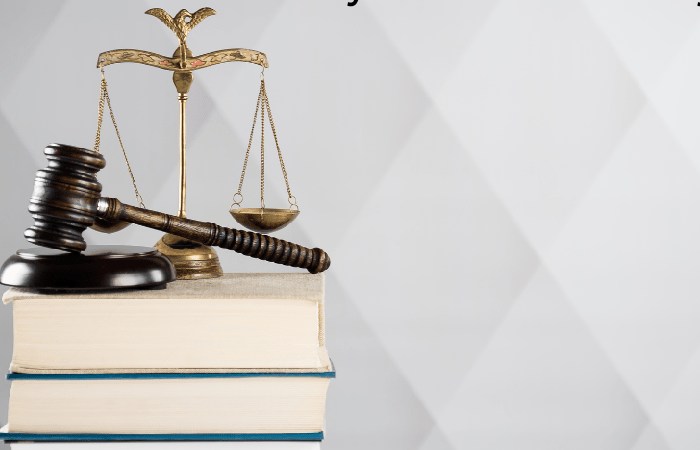It Is Not Wisdom But Authority That Makes A Law. T – Tymoff – Tymoff’s assertion that “it is not wisdom but authority that creates a law” encapsulates the complex relationship between these two elements in law. While authority provides the legal framework, wisdom is the moral compass that guides the creation of just and equitable laws.
The interplay between wisdom and authority is a subject of ongoing debate in law and governance. The famous saying, “It is not wisdom but authority that makes a law,” by T. Tymoff, summarizes a complex concept that deals with the basics of legal bindings, precedence, and their meaning.
The Role of Wisdom In Law

Wisdom is often viewed as a product of knowledge and experience and has always remained associated with the creation of laws. Ancient societies sought the advice of wise individuals to formulate regulations that governed their communities. However, the accuracy of this perception was called into question by the statement of T. Tymoff.
Wisdom and Authority: Understanding the Relationship
Wisdom and authority may initially appear to be opposing forces, but their complex relationship becomes apparent when examined within the framework of the law. While wisdom involves sound knowledge and judgment, authority represents the power to enforce regulations.
Together, they shape legal systems’ foundations in ways that profoundly affect societies and individuals.
Wisdom as a Source of Insight
In the legal context, wisdom is a source of insight that guides the creation of effective regulations. Legal systems imbued with wisdom remain based on a deep understanding of human behavior, ethical considerations, and the complex interplay of social dynamics.
Lawmakers who prioritize wisdom draw on historical experience and philosophical foundations to craft laws that promote legal compliance, fairness, equality, and social progress.
These legislators approach their task with the long-term well-being of the population in mind. They recognize that laws deeply rooted in wisdom have the potential to overcome immediate challenges and provide lasting solutions that stand the test of time.
Wisdom as a Basis for Fairness
At the heart of wisdom-based legal systems is the commitment to justice. Such systems recognize the inherent complexity of individual lives and situations and forego blanket judgments.
Instead, they embrace the nuances of human existence and attempt to address them through sensitive and multi-faceted approaches. In pursuing justice, wise laws consider each individual’s circumstances and ensure that justice remains administered impartially.
By considering unique perspectives, these legal systems emphasize the importance of equality and recognize that a just society is one in which everyone remains treated with dignity and respect before the law.
The Balance Between Wisdom and Authority in Today’s Society
In today’s world, finding a balance between wisdom and authority remains challenging. Information democratization has increased the influence of informed citizens and blurred the boundaries between traditional management and collective wisdom.
This evolving landscape requires innovative legislative approaches that consider diverse stakeholders’ insights.
The Role of Authority in Legislation
On the other hand, it is the legitimate power to make, enforce, and interpret laws. This power ensures citizens’ compliance with the established legal frameworks. Authority provides stability, order, and a dispute-resolution mechanism within a society.
Authority as a Means of Enforcement

The power given to authorities enables them to enforce laws and rules and ensure that the fabric of society remains intact. This authority provides them with the means to prevent and combat violations of established norms.
The mere presence of authoritative figures is a deterrent and deters individuals from engaging in unlawful behavior for fear of repercussions.
Through the ability to impose penalties, authorities create a sense of responsibility among citizens. This accountability is critical to maintaining the integrity of legal systems and promoting a culture of compliance.
Authority as A Tool Of Order
Stability and conformity remain often emphasized in societies where authority is paramount in lawmaking. The presence of authoritative figures and institutions promotes the sense of order essential for the smooth functioning of communities.
This order gives citizens a sense of predictability and security and contributes to society’s overall well-being. However, the dominance of authority raises concerns about possible abuse of power.
The concentration of authority in the hands of a few can lead to an unbalanced distribution of justice, in which the powerful may exploit their position for personal gain. In such scenarios, it is essential to find the delicate balance between mandatory controls and the protection of individual rights.
Conclusion
Tymoff’s statement, “It is not wisdom but authority that makes a law,” encapsulates the complicated relationship between two essential components of legislation.
While authority can transform wisdom into binding laws, the synergy between the two results in laws that are authoritative but also fair, adaptive, and reflective of societal needs, as society evolves, the acceptance of wisdom and authority in the legal field remains paramount.


